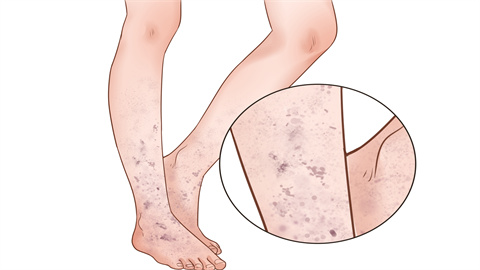What causes capillary dilation?
Generally, the main causes of capillary dilation include environmental irritation, aging, rosacea, cirrhosis, and hereditary hemorrhagic telangiectasia. If discomfort occurs, it is recommended to seek timely medical treatment at a qualified hospital. Detailed explanations are as follows:
1. Environmental Irritation
Long-term exposure to ultraviolet radiation, cold, or high temperatures can damage the elastic fibers of capillary walls, causing vessel wall relaxation and dilation, commonly seen on exposed areas such as the face and arms. Daily protection is necessary; apply sunscreen with SPF 30+ when outdoors, keep warm in cold weather, and cool down in hot weather to reduce continuous environmental stimulation to blood vessels.
2. Aging
With increasing age, skin collagen is lost, weakening the supporting structures of capillary walls and decreasing their elasticity, which can lead to dilation and visibility, commonly occurring on the faces of middle-aged and elderly individuals. Skin condition can be improved by using skincare products containing vitamin C and vitamin E. Under a physician's guidance, intense pulsed light therapy may also be performed to stimulate collagen regeneration and enhance vascular wall elasticity.

3. Rosacea
Demodex mite infection, endocrine disorders, and other factors may cause rosacea; inflammatory stimulation can lead to persistent facial capillary dilation accompanied by symptoms such as redness and papules. Under a physician's guidance, medications such as metronidazole gel, azelaic acid cream, and doxycycline tablets may be used to suppress inflammatory reactions, kill Demodex mites, and alleviate symptoms of capillary dilation.
4. Cirrhosis
Liver disease leading to impaired liver function and increased portal vein pressure promotes the formation of collateral circulation, causing capillary dilation in areas such as the abdominal wall and lower esophagus. Under a physician's guidance, medications such as entecavir tablets, compound glycyrrhizin tablets, and silybin capsules may be taken to treat the underlying disease and reduce portal vein pressure. When necessary, transjugular intrahepatic portosystemic shunt (TIPS) may be performed to improve vascular dilation.
5. Hereditary Hemorrhagic Telangiectasia
This autosomal dominant disorder causes abnormal vascular wall structure, making capillaries prone to dilation and rupture in multiple areas of the body, commonly seen in nasal passages, oral mucosa, and skin of limbs. In daily life, strenuous exercise and trauma should be avoided to prevent vascular rupture and bleeding. Under a physician's guidance, medications such as thalidomide tablets, beraprost sodium tablets, and sirolimus tablets may be used to improve vascular wall stability and reduce the occurrence of dilation.
In daily life, one should avoid frequent temperature changes that may irritate the skin, reduce intake of spicy foods, maintain gentle and clean skin care, avoid using irritating skincare products, and regularly monitor health status, especially for those with a family history of genetic diseases. Early detection and intervention for related diseases help maintain vascular health.








